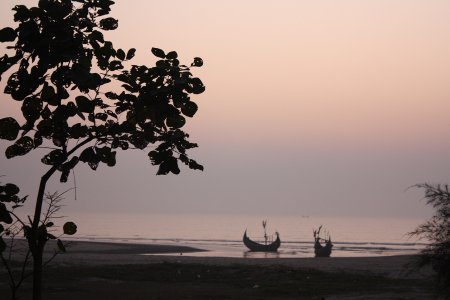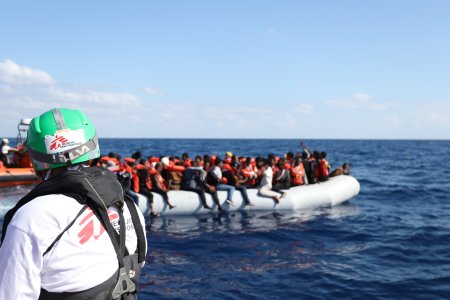 MSF/Mohamad Cheblak
Analysis
MSF/Mohamad Cheblak
Analysis
10/05/2023
Michaël Neuman
In Groupe URD's new issue of "Humanitaires en mouvement" (n°25), Michaël Neuman describes rescue operations in the Mediterranean and the strategies put in place by MSF to adapt to the constraints imposed by governments.
Read more
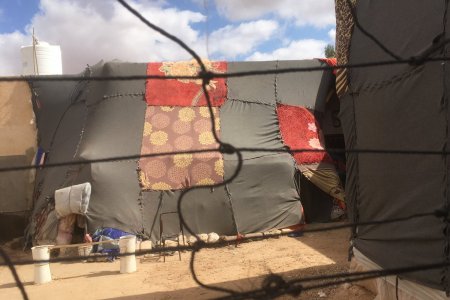 Michaël Neuman / MSF
Opinion
Michaël Neuman / MSF
Opinion
03/02/2020
Michaël Neuman
Michaël Neuman spent ten days in Libya with Médecins Sans Frontières teams working in detention centres for migrants. From his stay, he brings back the following impressions that illustrate the gloomy situation of the people who are held there, for months or years, and the even more difficult situation of all those subject to kidnapping and torture.
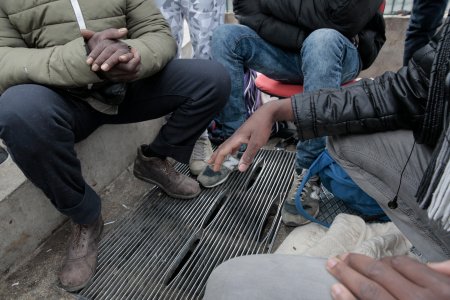 Antoine Kremer/MSF
Analysis
Antoine Kremer/MSF
Analysis
05/07/2019
Michaël Neuman
In the summer of 2015, the French section of Médecins Sans Frontières started aid projects for migrant populations in Greece and France. The launch of these operations was the occasion for lively discussions within the association, both in terms of public positioning (how to justify an intervention in a rich country and not get lost in "political" territory?), and in terms of revising our operating methods, knowing that the primary needs of migrants were not primarily medical. Some people then recalled the association's militant practices in the 1990s, which were sometimes considered as abuses. By retracing the history of the French Mission, Michaël Neuman seeks to understand, with regard to the migration issue, the complex articulation between operational constraints, political positioning and militant practices.
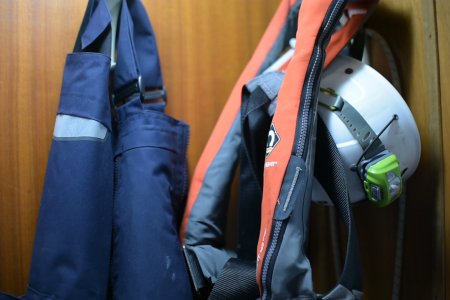 Ikram N'gadi
Op-ed
Ikram N'gadi
Op-ed
Le Monde
12/12/2018
Michaël Neuman
Mego Terzian
Dont acte, la politique de harcèlement judiciaire, administratif, politique aura eu raison de l’Aquarius, déployé entre 2015 et le milieu de l’année 2018 en mer Méditerranée.
Tribune de Mego Terzian (Médecin, président de Médecins sans frontières) et Michaël Neuman (Directeur d'études au CRASH de MSF) publiée le 07 décembre 2018 dans Le Monde.
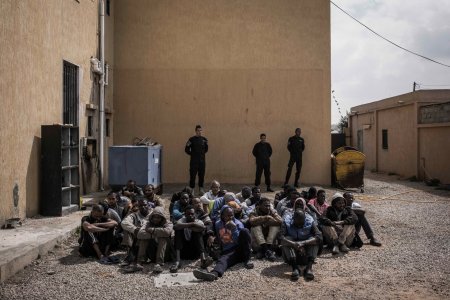 Guillaume Binet/Myop
Op-ed
Guillaume Binet/Myop
Op-ed
09/10/2018
Jean-Hervé Bradol
Numerous politicians, from Daniel Cohn-Bendit to Marine Le Pen and including Emmanuel Macron, denounce what they claim is collusion between organisations helping migrants (humanitarian workers) and smugglers (criminals). One group operates in full public view, the other out of sight, but both are said to be working together to help people illegally cross borders.
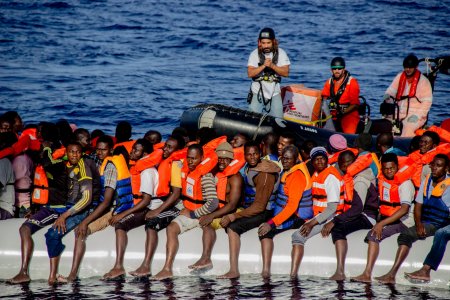 Borja Ruiz Rodriguez/MSF
Op-ed
Borja Ruiz Rodriguez/MSF
Op-ed
07/11/2018
Rony Brauman
Humanitarian organisations coming to the rescue of migrants in the Mediterranean Sea are kindly required either to watch them drown or to hand them over to human traffickers and torturers. We have seen countless political statements, opinion polls and editorials on the need to take a harder line against African migrants and accusing NGOs of being the accomplices of “smugglers”. We have even heard it said that these NGOs are organising the departures of those aspiring to migrate to Europe coincide with the presence of a rescue ship, making relief workers conscious actors in a criminal enterprise.
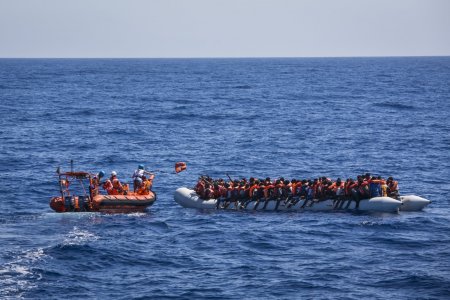 Andrew McConnell/Panos Pictures
Op-ed
Andrew McConnell/Panos Pictures
Op-ed
07/10/2018
Michaël Neuman
Thierry Allafort-Duverger
Humanitarian aid organisations carrying out rescues at sea were made into the accomplices of human traffickers. This accusation is as absurd as it is unacceptable. Not only do rescue operations at sea save people from drowning, but they evacuate people in situations of immediate danger in Libya, MSF recalls.
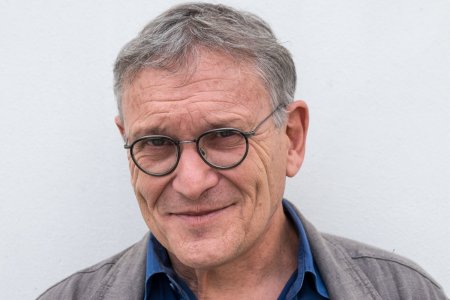 msf
Interview
msf
Interview
07/09/2018
Rony Brauman
Rony Brauman takes a critical look at "humanitarian wars" and argues for political solutions that could include Islamists. He recently published "Humanitarian Wars? Lies and intox "(Textuel, 2018). This interview was published on July 03, 2018 in l'Opinion.
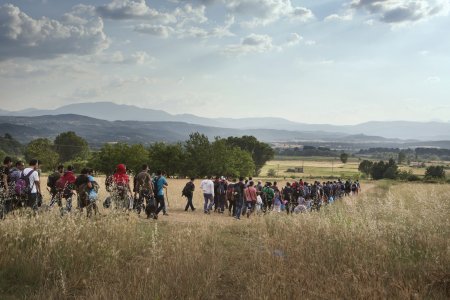 Alessandro Penso
Op-ed
Alessandro Penso
Op-ed
01/12/2018
Michaël Neuman
Abstaining from participation in a meeting taking place this coming Thursday, MSF feels that "government officials have listened politely at best and shown condescension and contempt at worst in response to positions expressed in meetings, op-ed pieces published in the press and questions asked in meetings by NGOs" and do not hide "a policy that is sliding into harsh repression".
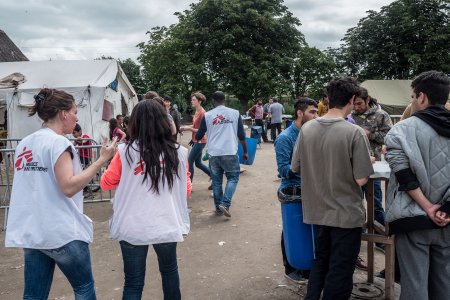 Charles Habib
Analysis
Charles Habib
Analysis
07/05/2017
Michaël Neuman
Franck Esnée
Following the dismantlement of the Basroch camp in Grande-Synthe and the resettlement of refugees in the new La Linière camp, in the spring 2016, Michaël Neuman and Franck Esnée wanted to focus their analysis and story on the “camp” – as an object –, its nature and management. This article was originally published in Alternatives Humanitaires #5, in July 2017.
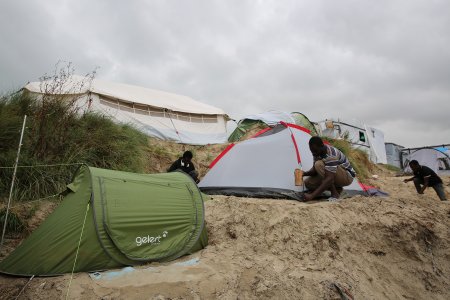 Mohammad Ghannam
Op-ed
Mohammad Ghannam
Op-ed
06/17/2017
Michaël Neuman
Corinne Torre
In this post, published in Border Criminologies, Michaël Neuman and Corinne Torre speak out against the inhuman conditions imposed on migrants and refugees in Calais by the French state. This piece was originally published in French in Le Monde.
 MSF/Mohamad Cheblak
Analysis
MSF/Mohamad Cheblak
Analysis







